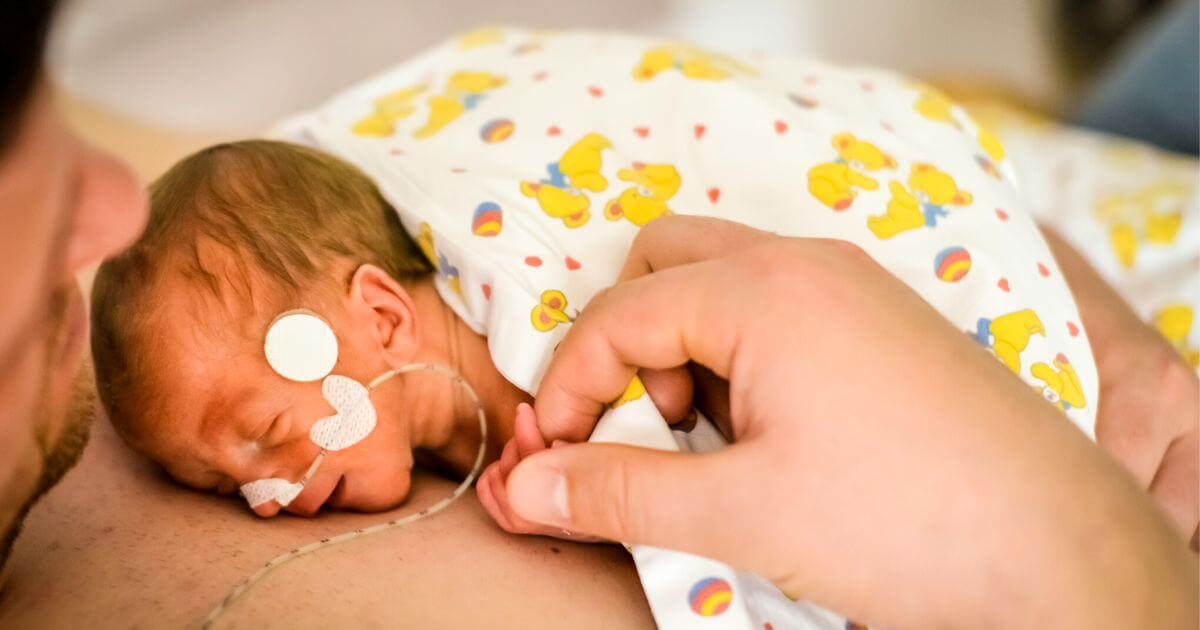A proposal by Canadian doctors to legalize euthanasia for newborns with severe disabilities has sparked outrage among pro-life advocates, who warn it represents a dangerous slide toward devaluing human life.
The Quebec College of Physicians has suggested that Medical Assistance in Dying (MAID) could be extended to disabled babies and those supposedly no prospect of survival – though doctors have been shown to be wrong about such babies time and time again.
The proposal is prompting comparisons to historical atrocities and raising ethical concerns about consent and the sanctity of life. The Quebec College of Physicians told the Daily Mail that “medical assistance in dying may be an appropriate treatment for babies suffering from extreme pain that cannot be relieved and who have severe malformations or serious polysymptomatic syndromes that destroy any prospect of survival.”
REACH PRO-LIFE PEOPLE WORLDWIDE! Advertise with LifeNews to reach hundreds of thousands of pro-life readers every week. Contact us today.
The group added, “The CMQ believes that parents should have the opportunity to obtain this care for their infant under these well-defined circumstances.”
Dr. Louis Roy, speaking for the Quebec College in 2022 to the Special Joint Committee on Medical Assistance in Dying, recommended euthanasia for babies up to a year old with supposedly “severe deformations” and “very grave and severe medical syndromes.” The college reiterated this stance recently in ironic terms, framing the deliberate ending of a child’s life as “care.”
Pro-life critics have condemned the proposal as a step toward eugenics.
Catherine Robinson, spokesperson for Right to Life UK, called it “appalling and a clear form of eugenic discrimination,” arguing that “babies with severe disabilities deserve care, and their families need support.”
Wesley J. Smith, a senior fellow at the Discovery Institute’s Center on Human Exceptionalism, warned, “Canada has jumped so enthusiastically into the euthanasia abyss that I have little doubt that infanticide will eventually be allowed there.”
Canada’s MAID program, legalized in 2016, has expanded rapidly.
In 2023, 15,343 people died through euthanasia or assisted suicide, accounting for 4.7% of all deaths in the country. The program no longer requires a terminal illness, and in 2027, eligibility is set to include mental illness alone. A 2023 parliamentary committee also recommended extending MAID to minors under certain conditions.
The proposal draws parallels to the Netherlands, where euthanasia for infants under one year old is permitted with parental consent if the child is deemed to be suffering unbearably. The Daily Mail noted that the Netherlands was the first country to adopt such a policy since Nazi Germany in 1939.
Alex Schadenberg, executive director of the Euthanasia Prevention Coalition, criticized the Quebec College’s position, questioning, “Why would you then have to give the child a lethal dose?”
He argued that the proposal undermines the principle of preserving life, especially for those unable to consent.
Krista Carr, executive vice president of Inclusion Canada, highlighted the societal impact, stating, “Most families of children born with disabilities are told from the start that their child will, in one way or another, not have a good quality of life.” She warned that such assumptions fuel a culture that devalues disabled lives.
Trudo Lemmens, a professor of law at the University of Toronto who initially supported Canada’s euthanasia laws, expressed concern about their expansion, saying, “One of the most worrying aspects of the Canadian experiment is it shows that once you start legalising, there is a risk that a significant number of physicians normalise this practice.”
He added, “It’s like putting fuel on the fire. I’m not sure it can be easily contained.”
Pro-life groups argue that the proposal reflects a broader erosion of moral boundaries in Canada’s healthcare system. A 2024 report by Ontario’s chief coroner found that some patients were euthanized due to “unmet social needs” like poverty or loneliness, raising fears that vulnerable populations, including disabled infants, could face pressure to choose death over life.
“Death is not a treatment,” said a Right to Life UK statement, emphasizing that “babies with severe disabilities deserve care, not extermination.”
As Canada debates this controversial proposal, pro-life voices are calling for stronger safeguards to protect the most vulnerable, urging a recommitment to life-affirming care over what they describe as a “culture of death.”











